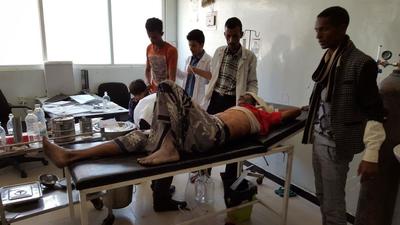The third chapter of the Syrian Exodus, a Médecins Sans Frontères/Doctors Without Borders (MSF) multimedia project to follow the route of Syrians fleeing the war. Click here to read the first, second, and fourth chapters.
Seated on the left is Yaman. He is 12-years-old, quiet, and a keen supporter of Real Madrid football club. He fled Syria and now lives with his family in a basement in Istanbul, in northwest Turkey. He misses his hometown, Al Kisswah, on the outskirts of Damascus, and wants to go back to his country once the war is over. When he grows up, he plans to be a mathematician.
Yanal, seated on the right, is a year younger than his brother. He likes to be the centre of attention and his heroes are the forwards of FC Barcelona. He dreams of leaving Syria and Turkey behind and moving on to a European capital. Yanal wants to be a journalist.
Even within one family, tensions exist between the longing to go home and the desire for new horizons. In the middle sits their father, Hassan Nasser.
Uncertain future
“If we leave, we will do so legally,” says Hassan, with finality. “Many Syrians enter Europe illegally, by way of smugglers, but that is very dangerous. My family won’t do that. If we went to Europe, it would be with our papers in order.”
Hassan twists in the sofa to relive the pain in his back. He was involved in the first Syrian protests in March 2011. Shortly afterwards, security forces arrived at his home to arrest him. Hassan jumped from a third-floor window and injured his back.
A year later, he and his family made it to Turkey. It is not yet clear whether he will need surgery. “If I got the chance to go to Europe to be treated, I’d go,” says Hassan. “I wish I could.” But Hassan is adamant that his most burning desire is to go back to his homeland once the bloodshed comes to an end.
Istanbul
Thousands of migrants and refugees from all over the world have made their homes in Istanbul. Many have escaped conflict-ridden countries such as Afghanistan, Iraq and Democratic Republic of Congo.
The latest country to join this list is Syria. Most of those who have escaped from Syria’s bombs live in refugee camps along the Turkish-Syrian border, but a growing number are making their way to Istanbul.
"Most of the Syrians we have seen are waiting in Istanbul because they have the financial means to do so,” says Ghassan Abou Chaar, MSF's coordinator in Istanbul. “Most of the people we are treating in our mental health programme have fled the war.
“There is a fear amongst them - more like a paranoia - to give information or talk to international organisations or to the Turkish population, so they are closed up, somehow on their own. They fear that they may be identified or deported from Istanbul.”
Hassan is unable to work due to his back injury. Doctors have been discussing for months whether surgery on one of his vertebrae might help. In the meanwhile, his financial resources are drying up.
Before the war, Hassan owned a clothes shop in his hometown and was financially well off. Then the conflict began. “We lost everything,” says Hassan. “Suddenly I had no customers, not one. In my region, at the beginning of the revolution, even people who had a below-average standard of living could at least survive, but later many of them were left without anything to live on and were forced to rely on charities.”
Life before the war
Stories like Hassan’s show how families who were once comfortable are now going through hard times. Kemal Zori, a Syrian Kurd, has also seen his fortunes take a plunge. He used to own a restaurant in Damascus, and the family was financially well off, although they felt discriminated against as members of the Kurdish community.
“We felt we were the tenth step of the social ladder,” he says. Although Kemal was not directly affected by the violence, his two sons were called up to join Bashar Al Assad’s army, at which point the family decided to escape. “Who were they going to fight?” he asks with irony.
Kemal admits missing life before the war. One of his brothers plays the lute to try to cheer everyone up. They are waiting for dinnertime in a spacious flat in the Kanarya area, on the outskirts of Istanbul. His family’s situation is not desperate, but it does signal the uncertainty faced by so many refugees. “The idea of Europe is not in my mind," says Kemal. “We will stay here, we have no choice.”
Watch the rest of the series:
- Chapter One: The Day My Village was Bombed
- Chapter Two: Carrying the Weight of the War
- Chapter Four: The exodus reaches Athens
Find out more about MSF’s work in Syria and Turkey





